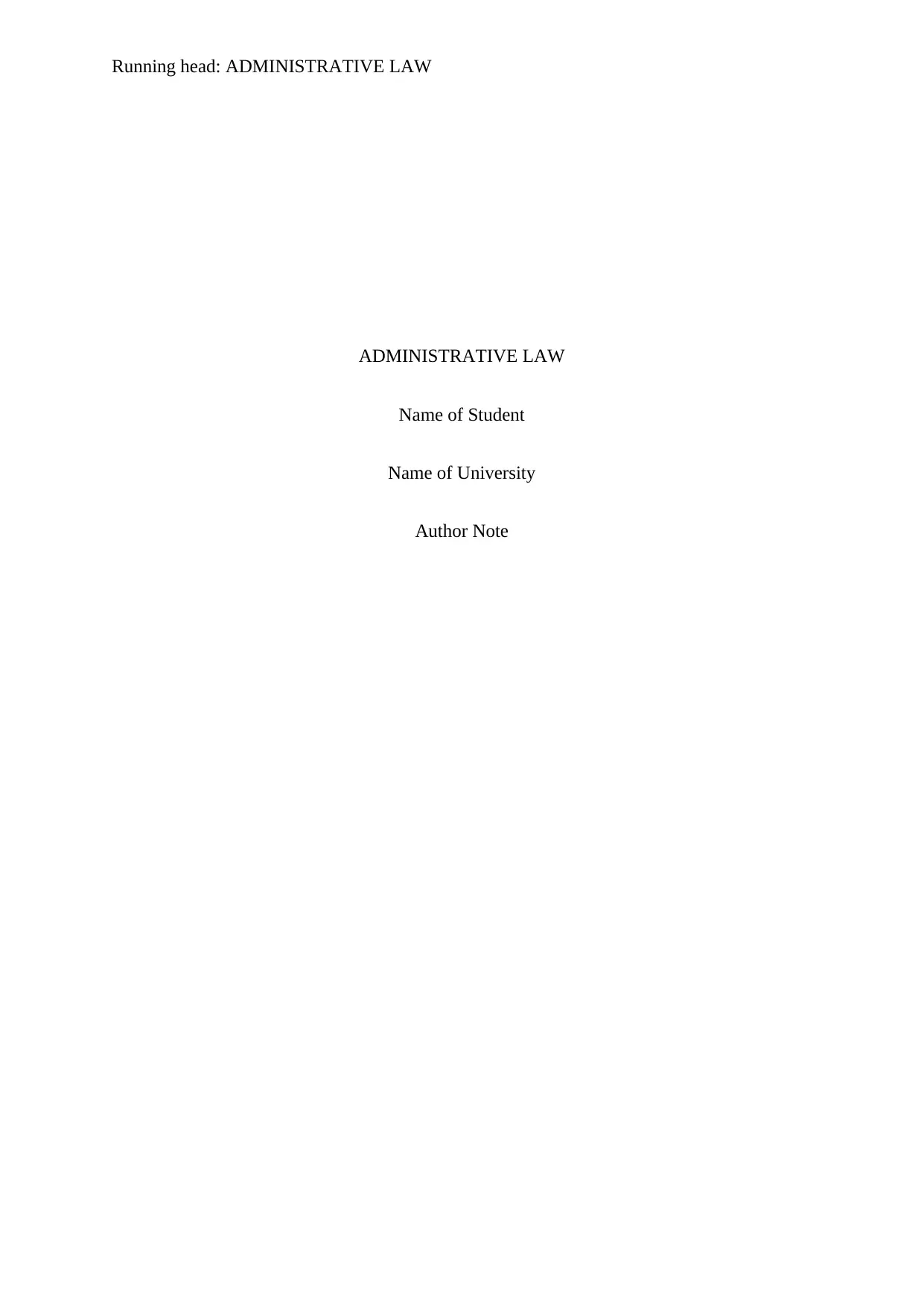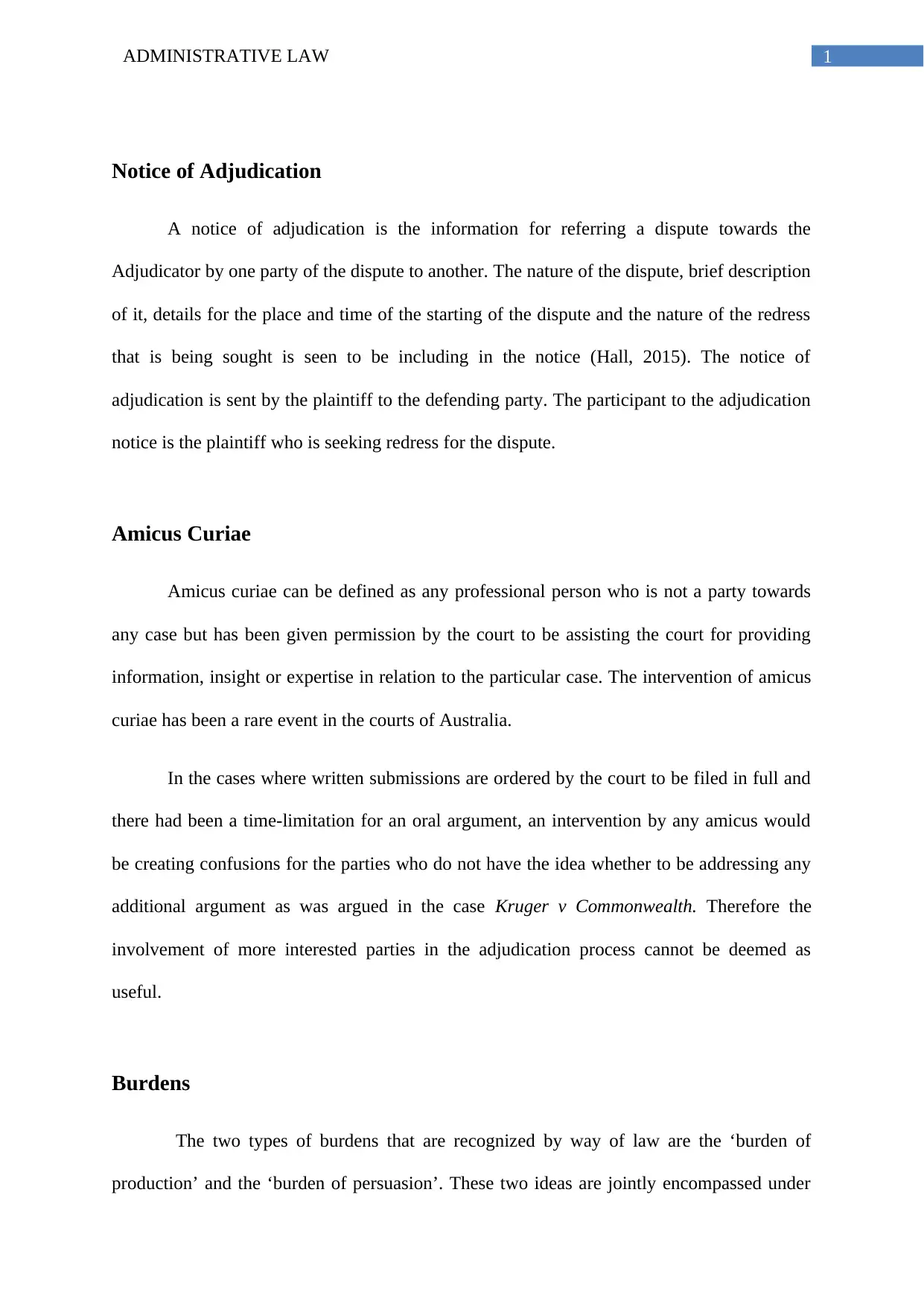Administrative Law: Notice of Adjudication, Amicus Curiae, and Burdens
VerifiedAdded on 2022/10/10
|4
|398
|83
Homework Assignment
AI Summary
This assignment delves into key aspects of administrative law, specifically focusing on the notice of adjudication, amicus curiae, and the concept of burdens of proof. The notice of adjudication is explained as the formal communication initiating a dispute, detailing the nature of the issue, the desired remedy, and the relevant parties involved. The role of amicus curiae, or 'friend of the court,' is examined, highlighting its limited application and potential complexities within the Australian legal system. Furthermore, the assignment clarifies the two types of burdens: the burden of production, which requires the presentation of minimum evidence, and the burden of persuasion, which is the ongoing obligation to prove a claim. The document references relevant case law and legal texts to support the explanations. This assignment is designed to provide a comprehensive understanding of these critical components of administrative law, offering valuable insights for students and legal professionals alike. The assignment is contributed by a student for publication on Desklib, a platform which provides all the necessary AI based study tools for students.
1 out of 4




